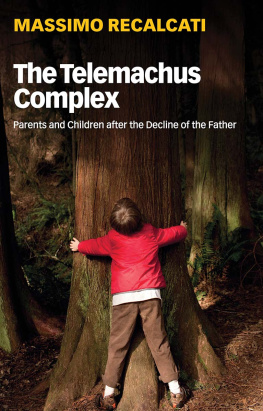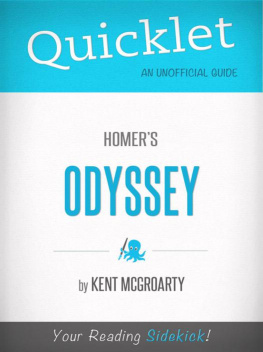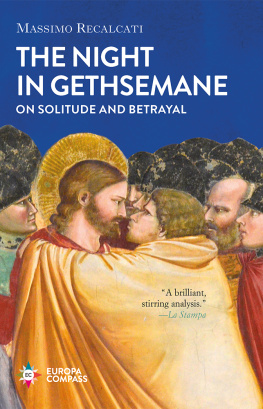Recalcati - The Telemachus complex : parents and children after the decline of the father
Here you can read online Recalcati - The Telemachus complex : parents and children after the decline of the father full text of the book (entire story) in english for free. Download pdf and epub, get meaning, cover and reviews about this ebook. year: 2019, publisher: Polity Press, genre: Religion. Description of the work, (preface) as well as reviews are available. Best literature library LitArk.com created for fans of good reading and offers a wide selection of genres:
Romance novel
Science fiction
Adventure
Detective
Science
History
Home and family
Prose
Art
Politics
Computer
Non-fiction
Religion
Business
Children
Humor
Choose a favorite category and find really read worthwhile books. Enjoy immersion in the world of imagination, feel the emotions of the characters or learn something new for yourself, make an fascinating discovery.
The Telemachus complex : parents and children after the decline of the father: summary, description and annotation
We offer to read an annotation, description, summary or preface (depends on what the author of the book "The Telemachus complex : parents and children after the decline of the father" wrote himself). If you haven't found the necessary information about the book — write in the comments, we will try to find it.
Recalcati: author's other books
Who wrote The Telemachus complex : parents and children after the decline of the father? Find out the surname, the name of the author of the book and a list of all author's works by series.
The Telemachus complex : parents and children after the decline of the father — read online for free the complete book (whole text) full work
Below is the text of the book, divided by pages. System saving the place of the last page read, allows you to conveniently read the book "The Telemachus complex : parents and children after the decline of the father" online for free, without having to search again every time where you left off. Put a bookmark, and you can go to the page where you finished reading at any time.
Font size:
Interval:
Bookmark:

To my children, Tommaso and Camilla, to their kingdom
The smell of my son is as the smell of a field Genesis 27: 27
Massimo Recalcati
Translated by Alice Kilgarriff
polity
First published in Italian as Il complesso di Telemaco Giangiacomo Feltrinelli Editore Milano, 2013. All rights reserved.
This English edition Polity Press, 2019
Polity Press
65 Bridge Street
Cambridge CB2 1UR, UK
Polity Press
101 Station Landing
Suite 300
Medford, MA 02155, USA
All rights reserved. Except for the quotation of short passages for the purpose of criticism and review, no part of this publication may be reproduced, stored in a retrieval system or transmitted, in any form or by any means, electronic, mechanical, photocopying, recording or otherwise, without the prior permission of the publisher.
ISBN-13: 978-1-5095-3174-5
A catalogue record for this book is available from the British Library.
Library of Congress Cataloging-in-Publication Data
Names: Recalcati, Massimo, auhor.
Title: The Telemachus complex : parents and children after the decline of the father / Massimo Recalcati.
Other titles: Complesso di Telemaco. English
Description: English edition. | Medford, MA : Polity, 2019. | Includes index.
Identifiers: LCCN 2019003896 (print) | LCCN 2019012784 (ebook) | ISBN 9781509531745 (Epub) | ISBN 9781509531714 (hardback) | ISBN 9781509531721 (pbk.)
Subjects: LCSH: Parent and child. | Father and child.
Classification: LCC BF723.P25 (ebook) | LCC BF723.P25 R4313 2019 (print) | DDC 306.874/2--dc23
LC record available at https://lccn.loc.gov/2019003896
The publisher has used its best endeavours to ensure that the URLs for external websites referred to in this book are correct and active at the time of going to press. However, the publisher has no responsibility for the websites and can make no guarantee that a site will remain live or that the content is or will remain appropriate.
Every effort has been made to trace all copyright holders, but if any have been overlooked the publisher will be pleased to include any necessary credits in any subsequent reprint or edition.
For further information on Polity, visit our website: politybooks.com
If men could have anything for the asking
my first wish would be my fathers return
Homer, Odyssey, Book XVI
What I call the Telemachus complex tackles the new forms of discontent affecting younger generations in an attempt to provide a new interpretation of the relationship between children and their parents at a time such as ours in which the symbolic authority of the father has lost its power, has been eclipsed, has faded irreversibly, as Eugenio Scalfari noted in an article written over fifteen years ago and fittingly entitled The Missing Father of Our Society. The difficulty faced by fathers in sustaining their own educational role and the intergenerational conflict that stems from this have long been noted, and not just by psychoanalysts. Fathers have gone missing, or have become their childrens playmates. However, increasingly pressing signs are emerging from both civil society and the political and cultural worlds suggesting a new and urgent demand for a father. Just to be clear: it is my view that this eclipse does not indicate a provisional crisis of the paternal function destined to leave space for its eventual recovery. Addressing once more the theme of the decline of the paternal imago does not mean mourning the myth of the father-as-master. I personally harbour no nostalgia for the paterfamilias. His time has passed; it is over. The problem is not, therefore, how to restore the ancient and lost symbolic authority, but rather to examine what is left of the father after his dissolution. This is what interests me. In this context, I see the figure of Telemachus as a light in the darkness. He demonstrates the impossibility of separating the movement of inheritance (a singular movement and not an acquisition as a given right) from the recognition of being someones child. Without this recognition, no symbolic filiation is possible.
The Telemachus complex is a reversal of the Oedipus complex. Oedipus viewed his own father as a rival, as an obstacle standing in his way. His crimes are the worst a human can commit: to kill ones father and sexually possess ones mother. The shadow of guilt falls on him and leads him to commit that extreme gesture of gouging out his own eyes. Telemachus, on the contrary, uses his eyes to scrutinize the sea, to watch the horizon. He waits for his fathers ship to return, and for this father he has never known to restore the Law to his island now dominated by the Proci, his mothers suitors, who have occupied his home and are wildly plundering his property. Telemachus is emancipated from Oedipus parricidal violence. He looks to his father not as a rival to fight to the death, but as a wish, a hope, as the possibility of reinstating the Law of the word in his land. If Oedipus embodies the tragedy of the transgression of the Law, Telemachus embodies that of the invocation of the Law. He prays for his father to return from the sea, placing in his return the hope that true justice is still possible in Ithaca. Whilst Oedipus gaze is extinguished through the impotent fury of self-blinding as an indelible mark of guilt, Telemachus gaze turns to the horizon to see if anything is returning from the sea. Of course, Telemachus risks falling into the trap of melancholy, of nostalgia for a glorious father, the king of Ithaca, the great hero who conquered Troy. The demand for a father, as Nietzsche well understood, always conceals the threat of an infinite, melancholic longing for someone who will never arrive. The risk taken by Telemachus is not unlike that of one of the two vagabonds in Samuel Becketts Waiting for Godot. We already know that Godot is the name of an absence. No God/Father can save us: the nostalgia for the father as a hero is an unshakeable illness. The time of the fathers glorious return has been left behind for good! No monuments, no invincible fleets, no party heads, no authoritarian and charismatic leaders, no gods or popes will return from the sea; only fragments, splintered pieces, fragile and vulnerable fathers, poets, directors, teachers with no job security, migrants, workers, simple witnesses who bear testament and demonstrate how to communicate a sense of faith in the future to ones own children and the new generations, giving a meaning to the horizon, a responsibility that does not lay claim to any notion of property.
We are in the era of the irreversible decline of the father, but we are also in the era of Telemachus. The new generations watch the sea, waiting for something of the father to return. But this wait is not a melancholic paralysis. The new generations are involved, much like Telemachus, in performing that singular movement of recapturing their own future, their own inheritance. Of course, Homers Telemachus waits to see the glorious sails of his heroic fathers victorious fleet emerge onto the horizon. Yet all he finds of his father are the remains of a nationless migrant. At play in the Telemachus complex is not the demand to restore the father-as-master to his lost sovereignty. The demand for a father, which today marks the distress affecting the younger generations, is not a demand for power or discipline, but for testimony. We no longer have fathers-as-masters, only the need for fathers-as-witnesses. The demand for a father is no longer a demand for ideal role models, for dogma, for legendary, invincible heroes, for intransigent hierarchies, or an authority that is simply repressive and disciplinary. Instead it is a demand for acts, choices, passions that can bear witness to how we can exist in this world with both desire and responsibility. The father invoked today can no longer be the father who has the final word on life or death, or on the meaning of good and evil; he can only be a father who is radically humanized, vulnerable, incapable of revealing the meaning of life but capable of demonstrating,
Next pageFont size:
Interval:
Bookmark:
Similar books «The Telemachus complex : parents and children after the decline of the father»
Look at similar books to The Telemachus complex : parents and children after the decline of the father. We have selected literature similar in name and meaning in the hope of providing readers with more options to find new, interesting, not yet read works.
Discussion, reviews of the book The Telemachus complex : parents and children after the decline of the father and just readers' own opinions. Leave your comments, write what you think about the work, its meaning or the main characters. Specify what exactly you liked and what you didn't like, and why you think so.










